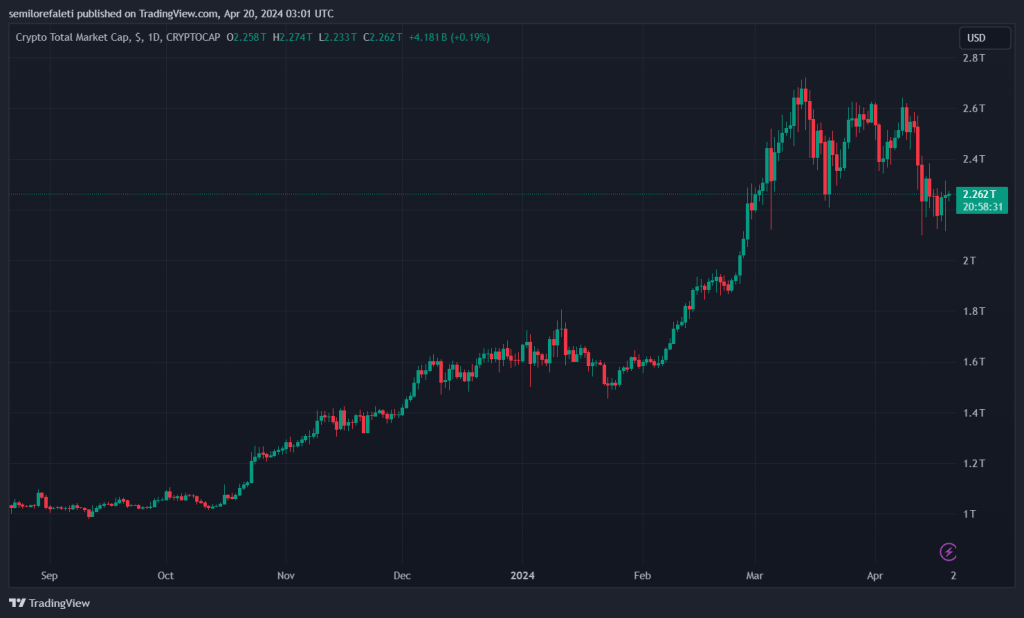The US Internal Revenue Service (IRS) has taken a significant step forward in regulating cryptocurrency transactions by releasing the preliminary draft of a tax form designed specifically for reporting income derived from these digital assets. Dubbed as Form 1099-DA, this document is identified as “Digital Asset Proceeds from Broker Transactions.”
This newly introduced tax form represents a crucial development in the IRS’s efforts to streamline the taxation process surrounding cryptocurrencies. By providing a dedicated reporting mechanism for income generated through digital asset transactions, the IRS aims to enhance transparency and compliance within the burgeoning cryptocurrency market.
Form 1099-DA is currently in its initial draft stage and has been made available for public review and feedback. Stakeholders, including taxpayers, financial institutions, and industry experts, are encouraged to offer their insights and suggestions to refine the form further before its official release. This collaborative approach underscores the IRS’s commitment to developing comprehensive and effective regulations tailored to the unique characteristics of digital assets.
As the cryptocurrency landscape continues to evolve rapidly, with an increasing number of individuals and entities engaging in related activities, the need for clear and standardized tax reporting procedures has become paramount. The introduction of Form 1099-DA represents a proactive step by the IRS to address this need and ensure that taxpayers remain compliant with their tax obligations in the digital asset space.
The IRS is targeting the release of a cryptocurrency tax form by 2025.
In August 2023, the US Treasury Department and the Internal Revenue Service (IRS) proposed a comprehensive set of regulations aimed at enhancing transparency within the cryptocurrency market. These regulations, which were part of the broader provisions outlined in the 2021 Infrastructure Investment and Jobs Act, sought to address concerns surrounding fairness and accountability in digital asset transactions. The proposed rules specifically targeted brokers and crypto exchanges, mandating them to report specific details of digital asset transactions to the IRS.
Eight months later, the IRS has taken a significant step forward in implementing these regulations by introducing a preview of the tax form designed for this purpose. Known as Form 1099-DA, this form is poised to play a pivotal role in facilitating the reporting of digital asset transactions by brokers and exchanges.
Form 1099-DA encompasses various types of entities operating within the digital asset ecosystem, including kiosk operators, digital asset payment processors, hosted wallet providers, and unhosted wallet providers. This broad scope ensures that all key players, whether centralized exchanges, decentralized platforms, or Bitcoin ATMs, are covered under the reporting requirements.
The form itself mandates traders to furnish specific details regarding their digital asset transactions, including the digital asset address, sale transaction ID, units of digital asset transacted, and the security status of the digital asset. While the IRS aims to implement the use of Form 1099-DA starting January 2025, brokers and digital asset providers are expected to begin issuing the tax form to traders and investors from January 2026.
However, the introduction of Form 1099-DA raises several potential concerns for taxpayers. One significant issue is the possibility of exposing previously unreported crypto transactions, potentially triggering criminal tax investigations. Additionally, challenges may arise in areas such as self-transfers, information exchange among digital asset brokers, and transactions involving foreign exchanges. These complexities underscore the need for careful consideration and thorough compliance measures as the IRS moves forward with its regulatory agenda in the cryptocurrency space.
The latest draft proposed by the IRS has faced opposition from the cryptocurrency community.
The recent unveiling of the IRS Form 1099-DA has sparked predictable backlash from the broader cryptocurrency community. Ji Kim, serving as the chief legal and policy officer of the Crypto Council for Innovation, has voiced disappointment regarding the IRS’s classification of “unhosted wallet providers” as brokers. Kim’s critique, shared in a post on X, underscores the concern that the IRS fails to acknowledge the limited access wallet providers have to users’ transaction details and identities.
In a similar vein, Shehan Chandrasekera, who holds the position of Head of Tax Strategy at CoinTracker.com, has raised alarm over the potential ramifications of the proposed tax form. Chandrasekera warns that the form threatens the fundamental principles of privacy and pseudo-anonymity within the US crypto space.
At present, the early iteration of Form 1099-DA remains open to feedback and commentary. It is anticipated that certain aspects of the form may undergo revisions in response to the widespread critique and feedback from the cryptocurrency community.




